Greenfield seniors ‘woefully in need’ of accessible, affordable housing
| Published: 03-22-2024 4:49 PM |
Sixty-three-year Greenfield resident Joannah Whitney has been living in her ground-floor apartment for the past 10 years. That will soon change, though, as she recently received a notice stating she has until the summer to move out.
“I am doing everything I possibly can to find another apartment and anybody who knows anything about housing knows it’s bad,” she said.
Whitney is diagnosed with multiple sclerosis and uses a wheelchair to get around. She has been looking for a new apartment for quite some time but her biggest hurdles are finding a place that is both affordable and accessible.
“Even if you are wealthy, it’s a challenge to find the housing that you’re looking for, even if you’re able-bodied. If you have a disability, it’s extremely difficult to find housing that’s got even minimal accessibility,” she said.
Whitney isn’t the only one facing this issue. Dorothy McIver and her partner Howard Clark are in their late 70s and thinking about downsizing in the future from their single-family home to an apartment near downtown.
Their current house has an upstairs, a downstairs and an attic, which they anticipate will become difficult to navigate in the coming years. They cannot afford to install a chairlift or build another bathroom on the first floor.
“We’re not ready to leave yet but at the same time, we want to be prepared and know that there are some options that we would like,” McIver said. “We are not in a situation where we can afford to be in a condo or at some point be in the assisted living center that’s here.”
These experiences are not isolated cases. Many seniors in Greenfield are looking for small housing units but encountering the same problem. With increasing rents and a lack of supply, there is nowhere for them to move within the city.
Article continues after...
Yesterday's Most Read Articles
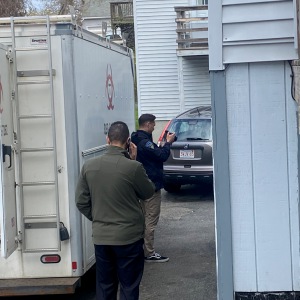 Authorities ID victim in Greenfield slaying
Authorities ID victim in Greenfield slaying
 State records show Northfield EMS chief’s paramedic license suspended over failure to transport infant
State records show Northfield EMS chief’s paramedic license suspended over failure to transport infant
 Police report details grisly crime scene in Greenfield
Police report details grisly crime scene in Greenfield
 On The Ridge with Joe Judd: What time should you turkey hunt?
On The Ridge with Joe Judd: What time should you turkey hunt?
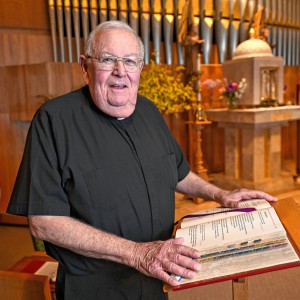 ‘I have found great happiness’: The Rev. Timothy Campoli marks 50 years as Catholic priest
‘I have found great happiness’: The Rev. Timothy Campoli marks 50 years as Catholic priest
 Formed 25,000 years ago, Millers River a historic ‘jewel’
Formed 25,000 years ago, Millers River a historic ‘jewel’
“We need mostly affordable housing for people whose income is not at the poverty level, but it’s the affordable in-between level that so many of us, like me, are in,” said Becca King, an 83-year-old retired psychotherapist.
King lives in a two-bedroom condo purchased by her son, but she is now looking to sell due to her son’s financial reasons. She receives a fixed monthly income from her retirement fund and Social Security, so paying an increasingly exorbitant amount in rent is not feasible.
“I found a one-bedroom small rental apartment. It started at $1,200 a month and went up to $1,600. A two-bedroom apartment, which is what I have now, starts at $1,900 and goes up to $2,400. I couldn’t afford any of that. I wouldn’t be able to buy food at that price,” King said.
Susan Worgaftik, a member of Housing Greenfield, a local advocacy organization that encourages the development of affordable housing in the area, said many of the houses in Greenfield are not accessible. According to a 2022 housing report by the University of Massachusetts Amherst, almost 70% of the houses in Greenfield were built before 1970, and 44% were built before 1940.
“We are woefully in need of housing that is accessible. A lot of our housing is old and as a result, we don’t have ramps and the bathroom doors are too narrow for wheelchairs,” Worgaftik said.
Greenfield also has an aging population. Twenty-five percent of the city is over the age of 65, while children under the age of 18 only make up 18% of the population, according to the U.S. Census.
“The housing pressure in this community is that there is no place for any of us to go to downsize if we want to stay in this area,” Worgaftik said. “The pressures on families or young adults who are looking for housing gets amplified because [seniors] are not moving.”
“There’s just not enough product. There’s not enough availability,” King said. “Nothing is moving. Everybody’s clinging to their real estate as if there was nowhere else to go — which is true, there is nowhere else to go.”
Many seniors want to stay in Greenfield because of the access to nature, the community and the city’s resources for the elderly. It’s home to the only hospital in the county and has services like LifePath, a private, nonprofit corporation that provides programs and services to support the independent living of elders and people with disabilities.
“It’s hard when you’re getting to the point where you can’t drive much and you can’t get public transportation to get you where you need to go,” McIver said. “It’s very complicated in rural areas.”
A key contributor to Greenfield’s tight housing market is the lack of development in recent years. Alyssa Larose, housing development director at the Franklin County Regional Housing & Redevelopment Authority, said there isn’t much availability in general.
“We haven’t had very much housing production at all since the recession,” Larose said. “We never really fully recovered from the recession in terms of our housing market and then COVID-19 hit. Now construction costs are kind of through the roof, so housing production is very, very slow in our region.”
Sen. Jo Comerford, D-Northampton, said western Massachusetts is facing a housing shortage of 13,000 units across the region. She added that creating tax incentives for developers and providing rental vouchers and one-time assistance to new homebuyers is needed to address the shortage.
“We’re experiencing population decline and we need more people to choose to live in Franklin County,” Comerford said. “We need newcomers, but we also need the people who are here with us to be able to live in decent and affordable housing.”
Last October, Gov. Maura Healey introduced a $4 billion housing bond bill to address the crisis. It includes giving local municipalities the ability to raise funds for affordable housing, permits accessible dwelling units and provides $1.6 billion for public housing, among other policies.
Comerford said she is “optimistic” the bill will pass the Legislature, but wants to make sure funding is distributed equitably across the state.
“In western Mass., we may need 12 units of senior housing in Greenfield and that may be enough for us. It’s not 200, but relative to our size, it’s robust. So we can’t be penalized for a smaller number if that smaller number is exactly what we need,” she said.
Worgaftik added that the housing developments in Greenfield are much smaller compared to projects in the eastern part of the state and not as competitive. As a result, the city does not have access to the same financing and subsidies offered by the state.
“We are a low-income community and the difference between subsidized rent and unsubsidized rent is fairly small,” Worgaftik said. “So, when it costs $350,000 to build a unit and developers want to get that money back in 10 years, we can’t charge that kind of rent here for our residents. It becomes a question for the developer whether they can make their money back.”
King, Whitney and McIver all said they would like to have an accessible apartment near Main Street to live within walking distance of grocery stores, pharmacies, the public library, City Hall, restaurants and other services.
“We would really love to have an accessible first-floor apartment that’s fairly close to downtown because we like to do things downtown and I can’t drive at night anymore, so I don’t want to be away on the outskirts of the city either,” McIver said.
For Whitney, finding a place that is universally designed to meet all needs is a priority.
“We as a society have done an extremely poor job of even creating apartments that are minimally accessible,” she said. “If we started to encourage property owners as a whole to include accessible features in their housing, it would become a normal thing rather than a special event that people with whatever impairment have to fix themselves.”
The Community Builders, a nonprofit affordable housing developer, is repurposing the building where the Wilson’s Department Store was once located for 100 years. The project includes a 61-unit affordable and universally designed apartment complex called The Putnam, with an expansion of Green Fields Market on the ground floor.
“The affordable housing crisis across the state is felt even more so in Greenfield where renters are cost-burdened at a much higher rate,” said Julia Scannell, a senior project manager at The Community Builders. “There has been a lack of housing development within Greenfield over the last 15 years, so we know this project is needed and wanted, and so we’re really excited for it to move forward.”
Timelines for housing projects can be lengthy. Just last year, an affordable apartment complex for seniors opened in nearby Sunderland with 30 one-bedroom apartments and three two-bedroom apartments. However, it took developers eight years to get funding for the project and two years for construction.
Scannell said The Community Builders recently submitted the competitive funding application to the state, which is needed to fund the bulk of the project. They expect to hear back in the summer, and if approved, construction on the apartments is expected to start in 2025. However, if the request is denied, the developer will have to reapply for future rounds of funding.
“We have a new mayor, a new School Committee, a new City Council — there’s a lot of hope in town that they might make some changes,” King said. “We have many opportunities that are on the books, but they’re all coming in the next three to five years, and I’ve got to move out now.”
For many seniors, moving to another nearby town isn’t an option because the housing markets there are facing similar challenges.
“This is a dynamic that, as a community, we really need to be thinking about,” Whitney said. “I don’t think we’re going to be able to band-aid our way out of this. We really need structural change.”

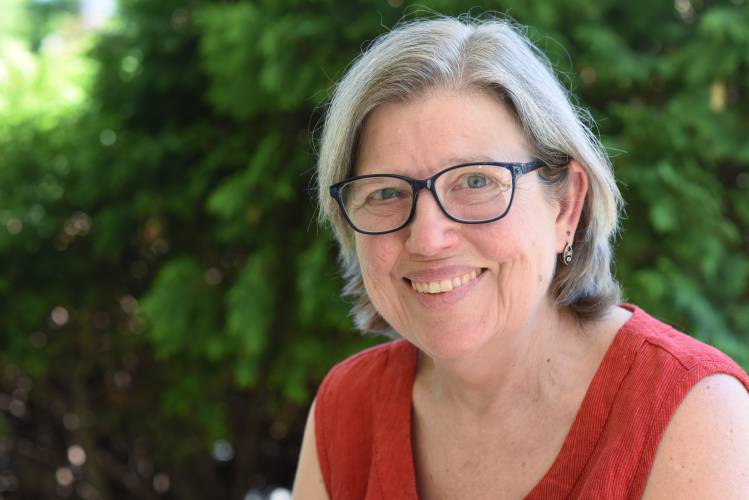
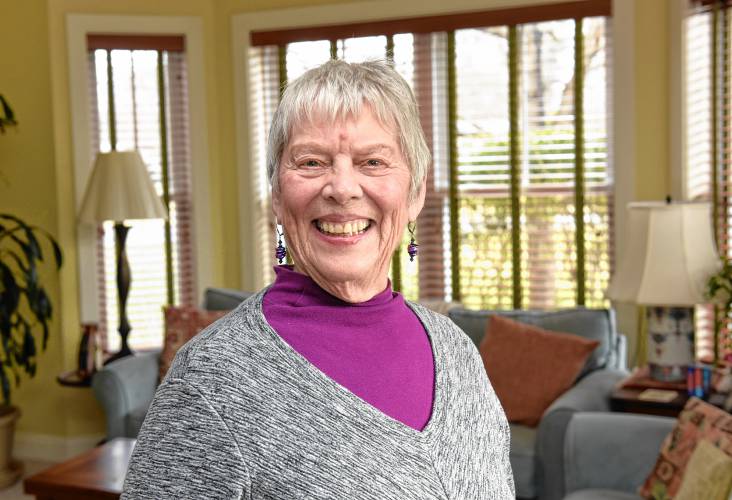
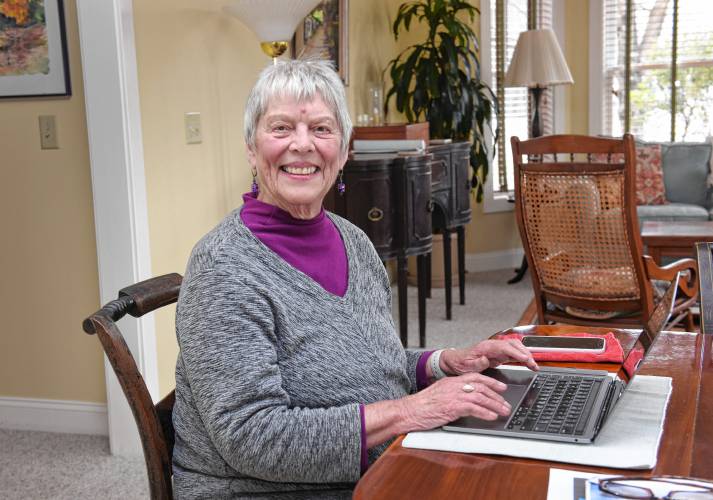
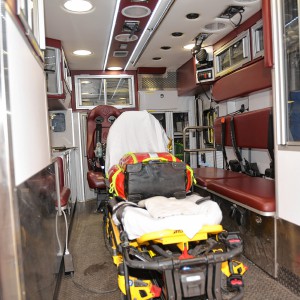 What are the protocols for emergency transport of infants?
What are the protocols for emergency transport of infants? Frontier Regional School students appeal to lower voting age
Frontier Regional School students appeal to lower voting age
